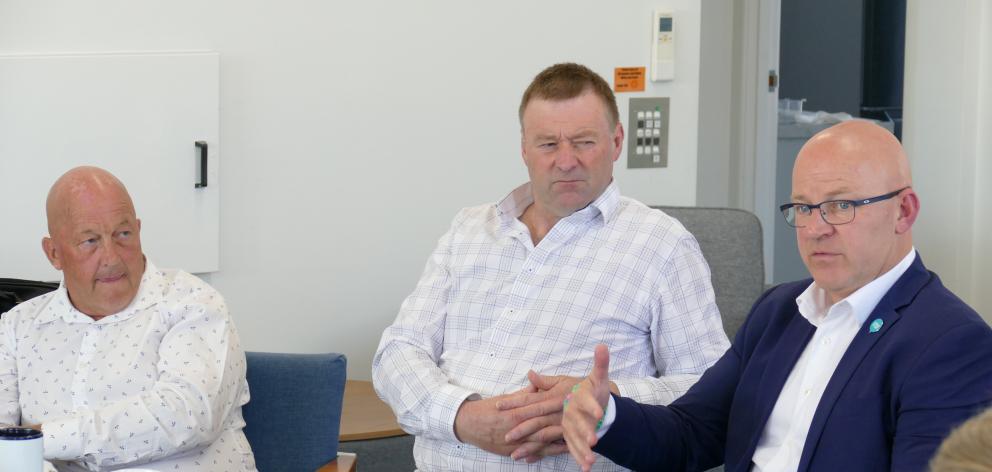
Matt Doocey visited Dunedin and South Otago yesterday on a ‘‘fact-finding’’ trip, talking to the area’s social services and mental health stakeholders.
Following meetings with providers in Clutha at the Tokomairiro Community Hub in Milton, the minister said his visit had been helpful in illuminating the situation in the South.
‘‘We believe [mental health] is an issue where [all] parties need to work together.
‘‘We want to work together on issues to create solutions that are more enduring than the three-year parliamentary cycle.
‘‘When you look at the range of community groups, it’s clear there’s a lot going on at a community level. They know their communities, so it’s up to us in government to partner with those local stakeholders to deliver local solutions for local needs.’’
He said challenges lay ahead in resourcing mental health services at the local level.
‘‘What we’re hearing across the country, and here today, is that the pressures of delivering services and getting an available workforce into our smaller towns is a challenge.
‘‘The three key priorities for me as minister are how do we grow access to support; addressing the mental health workforce crisis where, in some places, we have up to a 50% vacancy rate; and how do we do more in terms of prevention and early intervention?’’
Mr Doocey said the delivery of mental health services was a matter involving more than just the Ministry of Health.
‘‘We’re not creating a ministry for mental health. I’m responsible for the [$2.5 billion a year] mental health funding, but also looking at what we are doing about mental health within education, within Corrections and within our primary industries and rural communities.
‘‘Only by working in partnership together can we provide the best solutions for New Zealanders.’’
Clutha District Mayor Bryan Cadogan said local stakeholders appreciated the ministerial visit.
‘‘We appreciate both Minister Doocey and our local MP Mark Patterson arranging this visit today to allow us to express some of our concerns.
‘‘There’s definitely an unintended inequality of services in rural areas like Clutha, due to the tyranny of distance creating challenges for timely access.
‘‘We welcome the dialogue, but what will be key is what actions follow.’’













